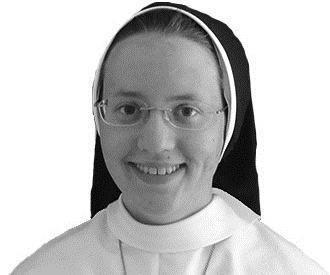Some years ago, I found myself sitting in a theology class, struggling to maintain composure as our professor, a diminutive man with an outsized reputation for profound holiness and fantastic teaching, spoke about heaven. It was less what he said than the manner in which he said it: heaven was real to him. His eyes, his gestures, his tone of voice all bespoke his eagerness to go there — and his earnest desire that we should, too.
I had always had trouble picturing heaven. “All the chocolate chip cookies you could ever want” somehow fell short. But in the years that have passed since Dr. Reardon’s impassioned presentation of beatitude, two points have become clear: first, the experience of heaven is entirely beyond anything we experience on earth; it is not simply a “bigger and better” version of this life. And second, appreciation of heaven requires growth in holiness.
The Scriptures testify movingly to the radical otherness of heaven. “Eye has not seen, and ear has not heard … [it] has not entered the human heart, what God has prepared for those who love him” (1 Cor 2:9). Heaven is not just more beautiful than the most beautiful mountain range you have ever seen, not even just more sublime than the most sublime human love you have experienced. In heaven, we will “see God as he is,” without the mediation of any created object (1 Jn 3:2). We will have face-to-face vision, not of the mountain but of its creator, the source of all its majesty. And because we will “see him as he is,” we will “be like him.” In order to give us this vision of Himself, He must elevate our human nature beyond its natural capacities. What this means is that, in heaven, we are divinized! This is significantly more attractive than five hundred chocolate chip cookies.
Even so, in order fully to appreciate heaven, we must become as holy as we can here on earth. The more our minds and hearts are purified, the more we will recognize the splendor of that destiny. The more we love God, the more we will yearn for union with the Beloved. “Where charity is greater, desire is greater, and desire in some way renders the person desiring fitted for and ready to receive what is desired. Thus the one who has more charity will see God more perfectly and will be more blessed” (St. Thomas Aquinas, Summa Theologiae I.12.6). It is not surprising, then, that campus rumor had it that Dr. Reardon spent three hours in adoration of the Blessed Sacrament for every hour spent in class. What is certainly true is that, if one observed him in prayer or, especially, receiving Christ’s Body at Mass, the words that pounded in one’s heart were, “friend of God.” He communed with God with astounding reverence, humility, and tenderness.
In the Church’s tradition, this month of November is dedicated to the souls of the faithful departed. Let us ardently desire and fervently pray that our beloved dead may “know as they are known” (1 Cor 13:12).
Sr. Maria Veritas Marks is a member of the Ann Arbor-based Dominican Sisters of Mary, Mother of the Eucharist.










